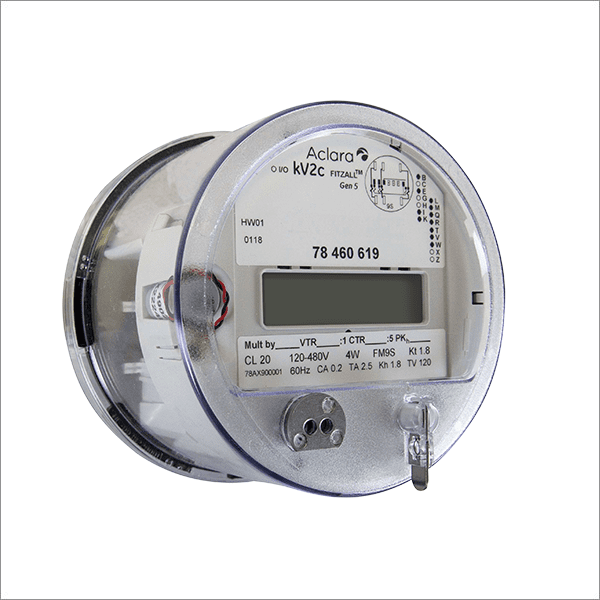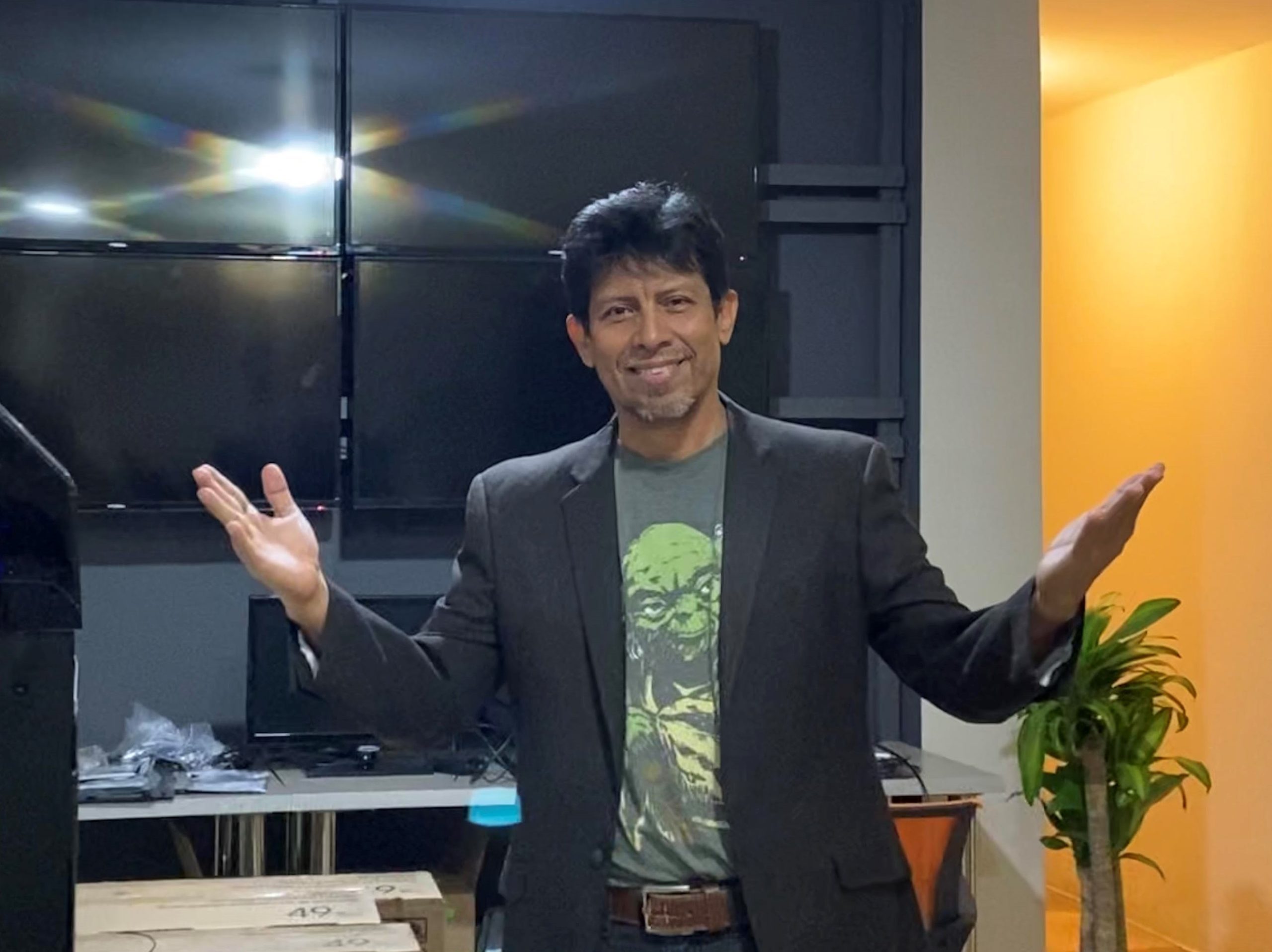The road to environmental sustainability will be paved with well-funded innovation. That’s at least according to the White House, whose recently-passed infrastructure bill puts a clear emphasis on combating climate change. Over $65 billion of the bill is earmarked for leveling up America’s power infrastructure. The Biden Administration asserts that this is the largest investment in clean energy transmission and the electric grid in our country’s history.
This big ticket funding will be a boon for socially-conscious entrepreneurs like Byron Rojas, the President and Founder of Easymetering [pictured above]. The Ecuadorian company has developed a technology that give users more granular data about electricity usage, on an appliance-by-appliance basis. They call it “advanced metering infrastructure,” or AMI for short – but in layman’s terms that means smarter smart meters.
Easymetering makes a communications module that is installed inside of power meters. “Currently, electric utilities use narrowband technologies in order to read a smart meter,” Rojas told Refresh Miami. In some ‘non-smart’ cases, technicians still come by to manually take meter readings. The vision Rojas is building is broadband-based, leveraging the fastest 4G LTE data infrastructure to unleash the power of smart meter technology. Last year, the FCC approved the use of LTE technology for applications in the electric utility sector.

“With broadband technologies, it will be possible to connect not only meters but also appliances,” explained Rojas. In Chile, the startup has developed a tool that tracks the energy used by particular appliances. This is helpful because in that country, providers are allowed to charge different electricity rates to consumers depending on the particular device that is using the energy.

Chile is an interesting example because the country relies on neighboring Argentina for its gas supply, so there is a strong emphasis on the sustainable production and distribution of electricity. The idea behind charging different rates is that it will push consumers to consider the environmental cost of the appliances they use.
Marcos Aurélio Ribeiro, an energy industry veteran who leads Easymetering’s business development and product management, noted that around the world “governments know that they need technology in order to incentivize the end user to go from gas or wood to electricity.” That’s why the scaleup decided to develop this technology: empowering consumers to better understand their electricity usage can, in their estimation, sway consumers towards electricity.
Since it was founded in 2010, Easymetering now has 25 employees across Latin America. Since 2012, the company has had an affiliation with Florida Atlantic University in Boca Raton in a non-resident capacity.
But this year, Easymetering decided to double down on its US presence by joining FAU’s Global Ventures Program.

Rojas recently brought on former General Electric executive Juan Falcone as CEO of Easymetering. Falcone, who originally hails from Argentina, said that through the Global Ventures program, the company plans to “complete the transformation to become a North America-based company.”
“From there, we hope to make our presence known and grow ourselves in the North American market,” before continuing to expand further afield, asserted Falcone.
The choice to land at FAU was a straightforward one for the Easymetering team. Rojas sees South Florida as “a good point for connecting Latin America with North America and the rest of the world.” He also expressed excitement about the prospect of potentially collaborating with FAU researchers to further develop their products. For his part, Falcone said that “now is a good time” to enter the US through Florida because of the abundant “events, resources, and money” available to innovators.
READ MORE ON REFRESH MIAMI:
- Canadian scaleup DNALabs spearheads US expansion from base in Boca
- Meet the team making Boca Raton a global startup launchpad
- SustainaBase helps companies reduce their carbon emissions, saving lives and the planet
- This North Miami startup is bringing farming into the 21st century
- Superlogic lands $7.6M strategic round to pioneer the future of loyalty points - April 19, 2024
- AI, climatetech and healthtech reign supreme on Day 1 of eMerge Americas’ 10th anniversary - April 18, 2024
- Brought together by tech, kept together by culture: Miami’s protagonistic role in LatAm’s startup story - April 15, 2024





